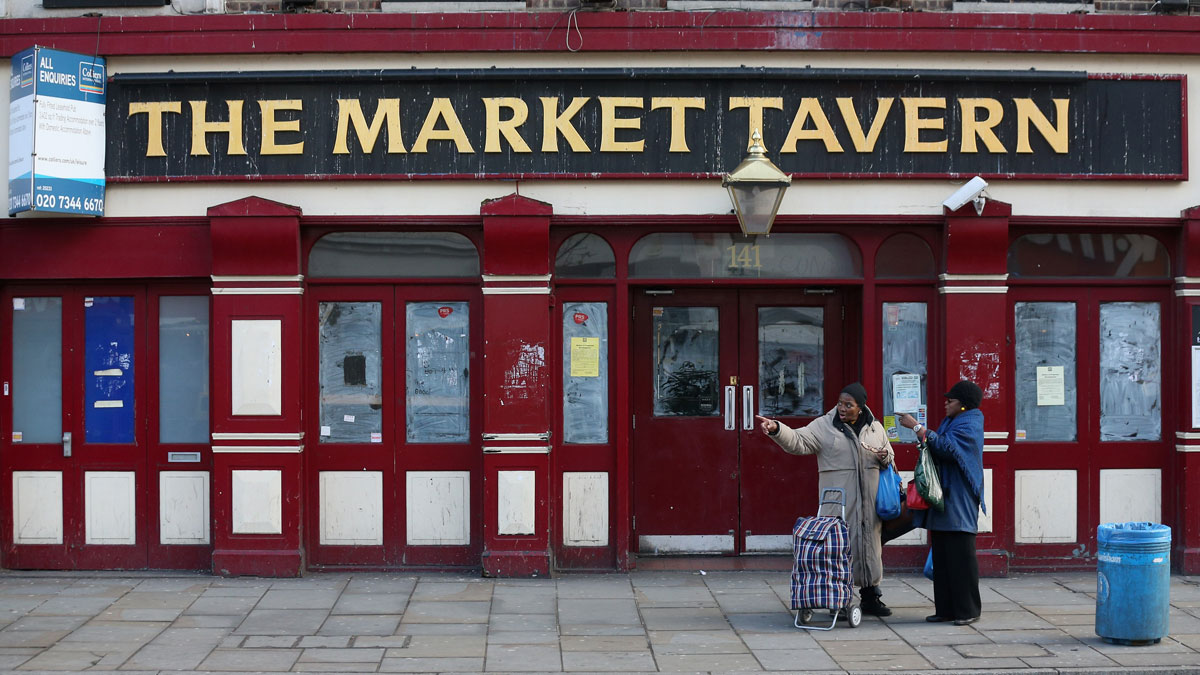How campaigners are trying to save Britain's pubs
Public houses are closing at the fastest rate since a law change in 1904 that decimated the sector

A free daily email with the biggest news stories of the day – and the best features from TheWeek.com
You are now subscribed
Your newsletter sign-up was successful
England's streets are losing more pubs than at any time since the turn of the last century, according to new figures.
Separate studies carried by the Lost Pubs Project and the Campaign for Real Ale (Camra) agree that around four pubs a day, or 29 a week, are closing their doors, the Daily Mail reports. There are now thought to be around 48,000 pubs in England, with around 29,000 having been 'lost', or closed.
The figures would mark the fastest closure rate since a law change under the 1904 Licencing Act decimated the industry, as magistrates were given the right to refuse to renew licences for thousands of pubs deemed surplus to the requirements of the community.
The Week
Escape your echo chamber. Get the facts behind the news, plus analysis from multiple perspectives.

Sign up for The Week's Free Newsletters
From our morning news briefing to a weekly Good News Newsletter, get the best of The Week delivered directly to your inbox.
From our morning news briefing to a weekly Good News Newsletter, get the best of The Week delivered directly to your inbox.
Campaigners are seeking to arrest the trend. Here are three ways they are hoping to save local pubs from closure:
1. Close planning loopholes
Tom Stainer, Head of Communications at Camra, said pubs are often "seen as soft targets for property developers". This is not least because they often come with permitted development rights that allow the building to be redeveloped for commercial or, more often, residential use without obtaining new planning permission.
Campaigners want more pubs to apply for listing as an 'asset of community value', meaning planning permission would be required for any change of use or development on the site, and for the government to do more to close loopholes. Earlier this year it introduced laws to remove certain permitted development rights for listed pubs facing closure.
A free daily email with the biggest news stories of the day – and the best features from TheWeek.com
2. Tax changes
The pub closures come at a time when beers sales are rising, posting gains of 3.9 per cent in the third quarter over 2014 levels. Brigid Simmonds, chief executive of the BBPA, told the Mail there is "a real opportunity to build on these strong figures" if the government were to take further action to reduce beer duty. Despite three one penny duty cuts in recent years, taxation "still places far too great a burden on British brewers… compared to our main competitors in the European Union," she added.
3. Form co-operatives
Some communities that face losing their only pub have buying the business themselves. Development Finance Today reports that 13 co-operative pubs are operating in England, Scotland and Wales, many of which been set up with the support of the charity Plunkett Foundation.
A spokesman for the Plunkett Foundation said: "Currently, most co-operative pubs are made up of communities that have purchased the building; however, if they feel it is appropriate, communities may choose to take on a lease initially, with a view to purchasing the property in the future.
"A co-operative pub can distribute profits to its members as a dividend, reinvest the profit back into the business or distribute it through community projects to the wider benefit of the community."
-
 What to know before filing your own taxes for the first time
What to know before filing your own taxes for the first timethe explainer Tackle this financial milestone with confidence
-
 The biggest box office flops of the 21st century
The biggest box office flops of the 21st centuryin depth Unnecessary remakes and turgid, expensive CGI-fests highlight this list of these most notorious box-office losers
-
 What are the best investments for beginners?
What are the best investments for beginners?The Explainer Stocks and ETFs and bonds, oh my